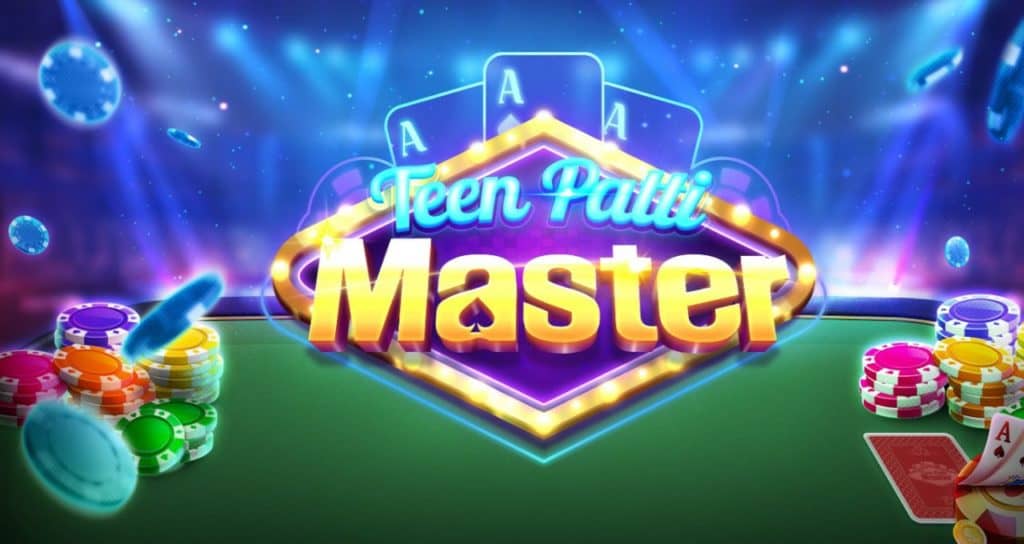Teen Patti Master is a very famous card game that combines elements of force, strategy and amusement. Often you have to compete against difficult adversaries who test your skills. And cunning as you progress through the game and playing against such demands of opponents, mindfulness a blend of wisdom, versatility and caution In this detailed guide we will explore ways and means on how to deal with tough opponents in Teen Patti Master for you. To maximize the potential of your game and ensure you have maximum chances of winning it. Understand the basics of Teen Patti Master Overview of the strip of children Young stars are commonly referred to as Teen Patti Master and it is played using fifty two common cards. And the game involves gambling, bluffing and strategy while it usually consists of three to six players playing at a time. Each player receives three playing cards facing downwards. And they need either form a high hand or try to make reasonable bets thereby convincing their opponents that they are better off leaving off playing them. The purpose of the game The ultimate goal in Teen Patti is to get the high hand or convince other players to buzz and eat the pot out of it. The break follows a series of stakes rounds where players can term, improve or chat primarily. Based on their cards and the perceived strength of the opponent’s arm. Identify Tough Opponents Traits of Tough Opponents Aggressiveness: Tough opponents regularly show off aggressive having a best style and frequently elevating the stakes to stress unique players. Direct Skills: Skilled players are adept at bluffing and might convincingly represent sturdy hands even supposing they’re susceptible. Consistency: These gamers maintain a regular approach that is making it difficult to expect their movements or pick out patterns. How to Recognize Them Observation: Pay attention to having best patterns, frequency of raises and reactions sooner or later of notable stages of the sport. Judgment: Note even as warring parties are competitive or conservative and the way they react to distinct situations. Behavioral Cues: Watch for behavioral cues collectively with modifications in having a best conduct or body language that may advocate bluffing. Strategies for Dealing with Tough Opponents Adapt Your Playing Style Adjust Aggression Levels Tight Play: When dealing with competitive opponents then it could be powerful to play more conservatively. Focus on strong palms and keep away from carrying out volatile performances. Aggressive Counter play: Conversely in case your opponent is passive. You would possibly advantage from adopting a greater aggressive approach to pressure them into hard selections. Alter Betting Patterns Mix Up Bets: Vary your making a bet styles to avoid being predictable and alternate among competitive and passive performers to keep opponents guessing. Bluff Strategically: Use bluffing judiciously and make certain that your bluffs are well timed and convincing and avoid over bluffing that can make you predictable. Psychological Warfare Reading Opponents Observe Reactions: Pay interest to how warring parties react to distinct betting situations and the changes in behavior can indicate electricity or weak points. Detect Bluffs: Look for signs of bluffing including inconsistent having a bet style, anxious behavior or unusual having a bet quantity. Employing Mind Games Mimic Behavior: Occasionally mimic your opponent and have a best conduct to confuse them and also create doubt about your hand strength. Feign Weakness: Pretend to have a vulnerable hand while you definitely have a strong one to result in bluffs or pressure your opponent to guess more. Mathematical and Statistical Approach Calculate Odds Pot Odds: Calculate the percentages of prevailing the pot based on the current guess and chance of improving your hand. Moreover this helps in making knowledgeable selections approximately whether or not to call or fold. Hand Probabilities: Familiarize yourself with the chances of diverse hand combinations and use these statistics to guide your making the best choices. Expected Value Analysis Evaluate Risk vs. Reward: Whereas you can assess the anticipated value of each decision. By way of weighing the ability rewards towards the risks concerned weighing the ability rewards towards the risks concerned. This facilitates making more strategic bets and heading off luxurious mistakes. Adjustments in strategy during play Positional awareness Play each game: Alternate your tactics based on your position at the table. Whereas it being in past action allows you to check your moves before rotating your fighters. Use the word bluff: If you do well then use your performance to your advantage by using a bluff which includes pretending to close a bet. Change the actions of opponent Adversary strategies: Develop counter strategies mainly based on the behavior of your opponent. For example if the opponent is constantly competing and you may not forget the trapping method to maximize their aggression. Adjust Frequency: Moreover adjust your betting and bluff frequency based primarily on how often your opponent is likely to roll or name. Deal with emotions and turn around To remain calm Emotional Pressure: Be comfortable with yourself and avoid letting emotions influence your choices. Emotional reactions can lead to improvisational and suboptimal play. Focused Play: Keep your eyes on the game and away from distractions that could affect your decision making. Handle Tilt Recognize Tilt: Be aware about signs and symptoms of tilt which consist of frustration or anger and take steps to manipulate it. Recognize when you are on tilt and take a wreck if essential to regain consciousness. Implementation of Recovery Strategies: Use strategies to get over tilt which include taking deep breaths, studying previous palms and resetting your mind set. Improve the skills and knowledge Endless education Knowledge Techniques: Constantly look how the successful players understand about effective playing and prepare the counterplans. Regular execution: Take part in routine practice sessions and aim at sharpening your skills. By enhancing your ability to face tougher opponents. Assess the play Session appraisal: Moreover your game and analyze for the possible improvements. And one could consider studying a bit of wine history. And also

